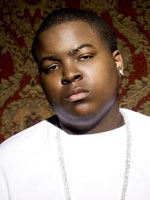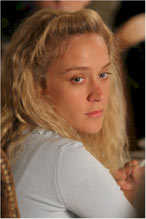 Every summer has its song–the one you blast through your car’s open windows and sing along to as the sun beats down on your face, your sweaty legs sticking to leather upholstery, and your hair blowing in the breeze. I remember back when Sisqo’s unfortunate “Thong Song” was the summer song of 2000 and how much happier I was in 2003, rockin’ out to the Ataris’ remake of the Don Henley classic, “Boys of Summer.” And how wonderful the summer of 2004 was, as my friends and I danced around while “shaking it like a Polaroid picture” to OutKast’s “Hey Ya!”
Every summer has its song–the one you blast through your car’s open windows and sing along to as the sun beats down on your face, your sweaty legs sticking to leather upholstery, and your hair blowing in the breeze. I remember back when Sisqo’s unfortunate “Thong Song” was the summer song of 2000 and how much happier I was in 2003, rockin’ out to the Ataris’ remake of the Don Henley classic, “Boys of Summer.” And how wonderful the summer of 2004 was, as my friends and I danced around while “shaking it like a Polaroid picture” to OutKast’s “Hey Ya!”
Ahhh, memories!
This summer is a little different, though. Instead of the upbeat pop songs I’ve been accustomed to hearing most of the summers of my life, the two songs I’ve been singing along to are uninspiring, if not downright depressing–“Rehab,” by Amy Winehouse, and “Beautiful Girls,” by Sean Kingston.
Winehouse, the English-Jewish soul singer, stands out from the crowd with her sultry, raspy voice, messy beehive hairdo, thick black eyeliner, and ’60s girl group sound–although in the tabloids, she’s reported on more for her depression, anorexia, “cutting,” violent relationship with her husband, and not surprisingly, her alcohol and drug escapades.
She opens “Rehab” with, “They tried to make me go to rehab, but I said ‘No, no, no.’… / I ain’t got the time, and if my daddy thinks I’m fine / He’s tried to make me go to rehab but I won’t go go go.”
How very sad, I know. But extremely catchy.
I think the timeliness of the subject matter (lately, what celebs haven’t been to rehab?), mixed with Winehouse’s retro sound is what initially drew me to the song. But on some level it disturbs me to sing along to such a personal song–especially since at the rate Winehouse is going, without some sort of intervention, she’s bound to be remembered as the next Janis Joplin–a talented artist dead way before her time.
But, because of its cool, swinging melody, I do sing along to it, and I’m well aware that every time I do, I’m in some way, contributing to this young woman’s tragedy. And that’s really sad–and perhaps, represents the irony of pop music.
 I also get the same feeling when I sing along to new rap/pop/reggae artist Sean Kingston’s hit single, “Beautiful Girls.” The song samples Ben E. King’s “Stand by Me,” and has a distinct doo-wop sound, truly unique in today’s pop music. Even more distinct is that it’s coupled with such pained lyrics as, “You’re way too beautiful girl / That’s why it’ll never work / You’ll have me suicidal, suicidal / When you say it’s over.” Keep in mind, the “hook” of this song is the melodic repetition of “suicidal, suicidal.”
I also get the same feeling when I sing along to new rap/pop/reggae artist Sean Kingston’s hit single, “Beautiful Girls.” The song samples Ben E. King’s “Stand by Me,” and has a distinct doo-wop sound, truly unique in today’s pop music. Even more distinct is that it’s coupled with such pained lyrics as, “You’re way too beautiful girl / That’s why it’ll never work / You’ll have me suicidal, suicidal / When you say it’s over.” Keep in mind, the “hook” of this song is the melodic repetition of “suicidal, suicidal.”
So, why has the word “suicide” joined the ranks of curse words and racial epitaphs in music censorship? And where will MTV and other media outlets draw the line? Is MTV afraid that talking about suicide is going to encourage their viewers to consider it? If so, why do they so often let drug and alcohol references–like those in “Rehab” and so many other hit songs–slide by? And isn’t the music industry a little weirded out–like I am–that artists are pairing such completely depressing lyrics with such fun, upbeat music?
True, the music is catchy and addicting, and I keep singing right along, but that doesn’t mean I feel good about doing it. It’s times like this that I actually hope “Thong Song” comes on the radio.


